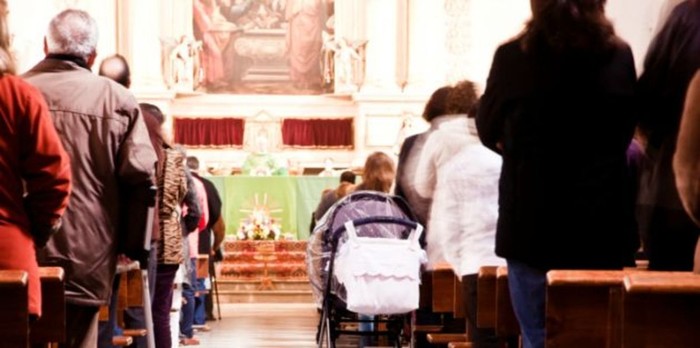
For years I went to church noticing only the smiling faces, heard only the “I’m fine” comments, sang the songs, shook hands or offered a hug, listened to sermons meant for the person sitting next to me or across the room.
And then God began to disturb me. “Give me Your eyes for just one second,” the songwriter asked the Lord. So did I. And I noticed a twitch in the Sunday smiles, a sigh in the words “I’m fine…”
I saw the sanctuary, my neighborhood, my family for what it was—a collection of broken people—some abused (the numbers rock me to my core), some abandoned, some having heard devastating news the week before, some awaiting news that could be devastating.
During the pre-service, when others were talking baseball scores and movies and backyard barbeques, I finally saw the single mom juggling three toddlers she didn’t dare take to the nursery because of how fragile they’d become since Daddy left in the middle of the night. I saw a couple slogging through the repercussions of the wife’s infidelity. A month later, she filed for divorce and left him the kids as if gifting him with an inherited china hutch she found no use for.
Across the aisle on Sunday sits an older couple days away from retiring to Florida when their daughter called, begging them to take in their fifteen-year-old grandson. She can’t handle him anymore, and knows if there ever was an unfit mother, the title belongs to her. She’s toying with the idea of checking into a rehab facility, but can’t until she knows her son is in a more stable environment than she can offer him.
Behind me, I hear soft tears from the woman whose husband committed suicide a month ago. Her sullen sons sit beside her, vanguards for their mother’s ravaged heart, but vanguards with their own hollowness.
Human hearts connect where our stories intersect. God knew that long ago. He could have limited His Word to instructions and directives. The God of the Universe had every right to do so. But He knew it’s the stories that reach us. Gideon’s story, for the days we feel as if our limited resources are being depleted even more, that around every corner is a new threat and our resilience is drained until we’re left holding a flashlight and a plastic sword.
The David stories in the psalms, for the days we want to trust but don’t know how, for the times it seems everyone and everything is against us.
The Abigail story to let those married to embarrassing excuses for husbands know that God understands even that.
The Samson story to remind young men that young women sometimes act with impure motives.
The Peter story to give us uncommon courage when our personal storm is raging, and to press home the point that counting the waves coming at us rather than diving deep into the gaze of the Savior calling to us is a shortcut to the bottom of the sea.
How do they do it? How do the wounded find where hope’s hiding in all that mess?
I spoke for a women’s retreat a year ago in which the lyrics for the worship music contained a typo that changed the meaning, a typo repeated on every chorus. At first the retreat attendees registered a hitch in their singing when the typo appeared, then reappeared. Soon, they overcame it to get back to worshiping.
The true test of faith isn’t that nothing will ever happen to distract us, disrupt us, disturb us to the core. The real issue is how fast we rebound to recover an attitude of worship.
In Psalm 27:13-14 CEB, a man pursued for doing the right thing cried, “(I would have despaired), But I have sure faith that I will experience the LORD’s goodness in the land of the living! Hope in the LORD! Be strong! Let your heart take courage! Hope in the LORD!”
As my admiration grew for those who survive the suffocating fallout of other people’s choices, I knew their ragged hope stories needed to be told. They needed a chance to give us a glimpse what’s really going on behind their Sunday smiles, what it’s like to be the one paying the price for someone else’s misdeeds or mistakes. If you’re like me, you’ll find your compassion getting a booster shot, the electrical pulses of your heart rearranged as you allow yourself to enter into their pain long enough to care like Jesus does, intercede for them like Jesus does, embrace them like Jesus does.
Cynthia Ruchti lives in Wisconsin where she spends her days diving into words, worship and wonder. She and her husband have been married for 40-plus years and have three grown children and five grandchildren. Her latest release is Ragged Hope: Surviving the Fallout of Other People’s Choices.
Learn more about Cynthia Ruchti andher books at www.cynthiaruchti.com. Readers can also become a fan on Facebook(cynthiaruchtireaderpage) or follow her on Twitter(@cynthiaruchti).







